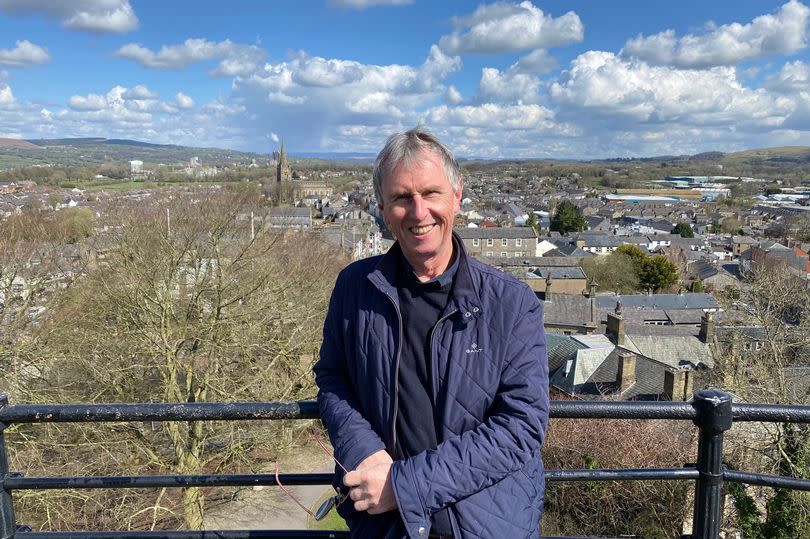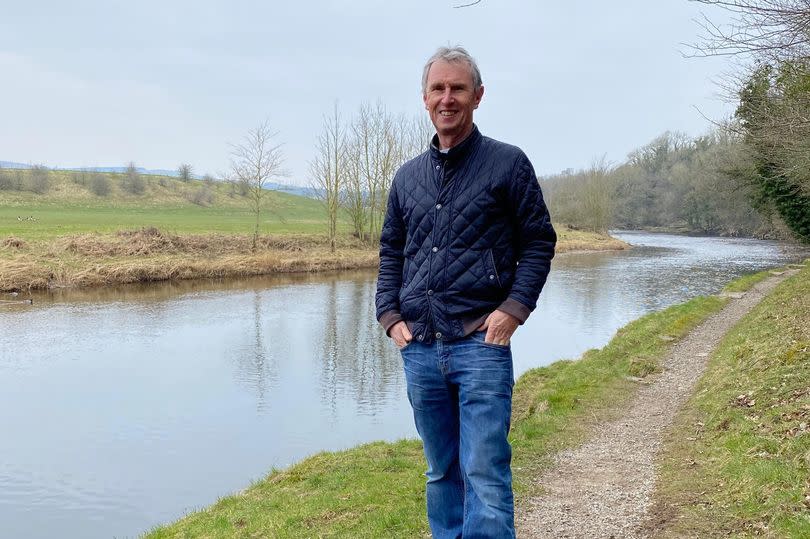Nigel Evans says 'it's not about me' as he ponders life after 32 years as Ribble Valley MP

For more than 30 years Nigel Evans has represented his 'adopted home' of the Ribble Valley.
A career politician, Swansea-born Nigel was just 28 when he was first elected as a councillor at West Glamorgan County Council, having completed a degree in politics at Swansea University. He worked as a manager of his family's newsagent's and convenience store in Swansea.
Nigel stood as the Conservative candidate - and lost - in the general elections in Swansea West (1987) and Pontypridd (1989) before contesting Ribble Valley in 1991 and winning in Lancashire following year. In the last general election, in 2019, Nigel was re-elected with an increased vote share of 60.3% and an increased majority of 18,439.
READ MORE: Ribble Valley General Election 2024 full result
Ahead of the 2024 General Election the boundary of the Ribble Valley constituency was significantly redrawn, losing the areas of Clitheroe and Whalley, and gaining parts of Preston. At the time, Nigel spoke of being "very disappointed" at the changes, which he said would "carve up communities in the Ribble Valley".
And now, 32 years after he was first elected to represent this rural part of Lancashire, Nigel faces the unknown as he became one of dozens of Conservative MPs to lose their seat. Even before the result was announced, a gracious Nigel conceded defeat to Labour's candidate Maya Ellis. He wished her the best of luck as he thanked the people of the Ribble Valley for allowing him to represent them for more than three decades.
Nigel branded the overwhelming Conservative defeat as an "act of vandalism" at the hands of Reform UK. When political tsunamis happen they take "the good and the bad", he said, as he pondered a life away from parliament. But, when asked what he will do now, after 32 years as an MP, Nigel simply said: "It's not about me."
READ MORE: Live Lancashire General Election 2024 results

Nigel Evans: Voting record
Nigel, who lives in the village of Pendleton in the Ribble Valley, voted in favour of Brexit. He has never rebelled against the Conservative Party. Nigel has consistently voted against allowing terminally ill people to be given assistance to end their life and consistently voted against the hunting ban.
Having come out in 2010, following his mum's death, Nigel has generally voted for equal gay rights and for allowing marriage between two people of same sex. He voted against smoking bans and has generally voted against university tuition fees.
Nigel Evans: Early life
Nigel remained in his birthplace of Swansea during his early years, attending Dynevor School before studying at the University College of Swansea, where he gained a BA (Hons) in Politics. During this time Nigel remained involved in the running of his family's convenience store in Swansea, set up by his grandfather in the 1930s and managed by the Evans family until 2012. At the age of 17, in 1974 Nigel joined the Conservative Party, before being elected as a councillor on West Glamorgan County Council from 1985-1991.
Nigel Evans: In government
During the Conservative Party's time in Government Nigel was appointed as Parliamentary Private Secretary (PPS) to David Hunt MP while he was Employment Secretary and Chancellor of the Duchy of Lancaster between 1993-1995. He then became PPS to Tony Baldry MP, the Ministry of State for Agriculture, from 1995-1996 before working as PPS to William Hague MP, Secretary of State for Wales, in 1997.
Nigel Evans: In opposition
In June 1997, after the election and the Conservative leadership contest (in which he supported William Hague) Nigel was appointed front bench spokesman for Welsh Affairs and joined the Constitutional Affairs team. In May 1999, William Hague appointed Nigel Evans as Vice-Chairman of the Conservative Party, and alongside leading the Party’s Information Technology for the Future group. In November 2000, Nigel was charged with leading the Conservative Party’s General Election campaign in Wales.
In September 2001 Iain Duncan-Smith appointed Nigel Shadow Secretary of State for Wales, and in October 2003, Nigel was appointed to the Welsh Affairs Select Committee. In November 2004, he was appointed Vice-Chairman of the Conservative Party, with specific responsibility for overseeing Conservatives Abroad and mobilising the Conservative vote overseas.
In December 2005, Nigel returned to the backbenches to concentrate on his work in Parliament. He joined the Council of Europe and the Western European Union as an appointee of the Prime Minister. Nigel served for three years on the Culture, Media and Sport Select Committee until July 2009 and then on the International Development Select Committee until June 2010.
Nigel Evans: As deputy speaker
On June 8th 2010 Nigel was elected as First Deputy Chairman of Ways and Means, and a Deputy Speaker of the House of Commons. This was the first time elections had been held for the roles and Nigel topped the poll. He served as First Deputy Chairman of Ways and Means until September 2013, when he then returned to the back benches. In January 2020, Nigel was again elected as one of three Deputy Speakers and this time as Second Deputy Chairman of Ways and Means.
Nigel Evans: Election results since 1992
1991: Came second with 38.5% of the vote behind the Liberal Democrat candidate Michael Carr.
1992: Elected to Parliament as MP for Ribble Valley with 52.4% of the vote and a majority of 6,542.
1997: Re-elected with a decreased vote share of 46.7% and an increased majority of 6,640.
2001: Re-elected with an increased vote share of 51.5% and an increased majority of 11,238.
2005: Re-elected with an increased vote share of 51.9% and an increased majority of 14,171.
2010: Re-elected with a decreased vote share of 50.3% and an increased majority of 14,769.
2015: Re-elected with a decreased vote share of 48.6% and a decreased majority of 13,606.
2017: Re-elected with an increased vote share of 57.8% and a decreased majority of 13,199.
2019: Re-elected with an increased vote share of 60.3% and an increased majority of 18,439.

 Yahoo News
Yahoo News 
